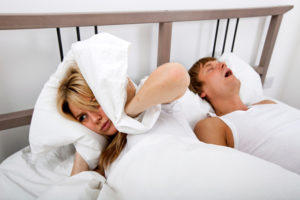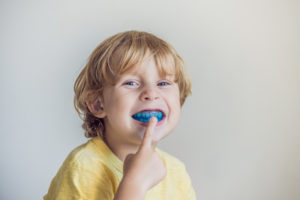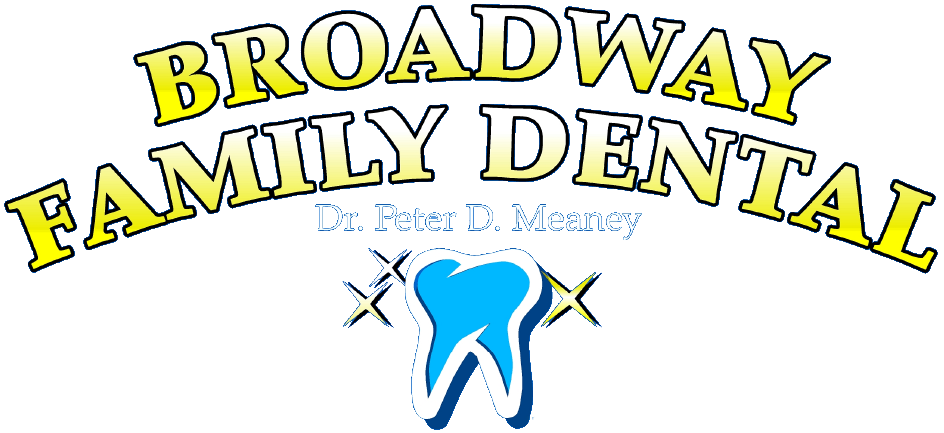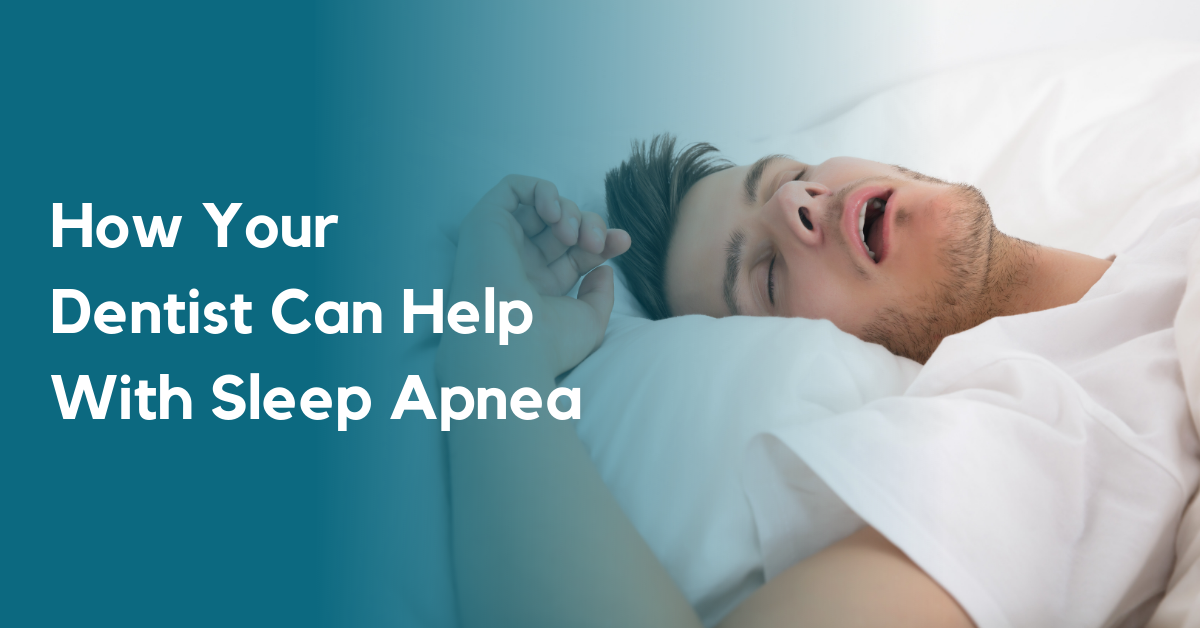
Are you struggling with sleeping at night? Are you or your partner feeling disrupted by your constant snoring? These are both signs that you may have sleep apnea. Sleep apnea sounds scary, but it is actually an extremely common condition. In fact, a recent study shows that about 22 million Americans have it. Stages of sleep apnea range from moderate to severe and many cases even go undiagnosed. However, not receiving treatment for sleep apnea can directly affect your day to day life. So, how can you get help? You can start off by calling your dentist. Your dentist can help you put an end to your sleepless nights with some very simple, non-invasive solutions.
What is Sleep Apnea?
Sleep apnea is a common sleep disorder that occurs when one’s airway becomes blocked while sleeping. The most common symptoms are loud snoring, drowsiness during the day, waking up with dry mouth and/or headaches in the morning, waking up periodically throughout the night and gasping for air.
There are 2 types of sleep apnea: Obstructive sleep apnea and central sleep apnea. Today we are going to focus on the most common type which is obstructive sleep apnea. This specific disorder occurs when the muscles in the back of your throat relax while you’re sleeping, consequently narrowing your airway. When your airway narrows it gets harder for you to breathe. Your brain senses your inability to breathe and triggers you to wake up so your airway can reopen. When this happens you usually wake up and fall asleep so quickly that you don’t even notice. This happens continuously throughout the night which disrupts your sleep cycle and impairs your ability to ever reach a deep state of sleep.
How Can Your Dentist Help?
A lot of people don’t want to admit that they have sleep apnea because they think there is only one way to fix it: a CPAP Machine. CPAP stands for continuous positive airway pressure. This machine works by blowing air continuously down your throat through a mask attached to your nose or mouth in order to keep your airways open. As you can imagine, sleeping while hooked up to a machine can feel invasive and is not the most comfortable thing in the world. The good news is CPAP machines are only completely necessary for severe and unique sleep apnea cases. Let’s go over some other sleep apnea remedies that your dentist can help you out with!
Mandibular Advancement Devices (MADs)
A mandibular advancement device, or a MAD, reduces the symptoms of sleep apnea my moving the jaw into a forward position. Doing this opens the airway and allows you to breathe better while you sleep. In a study done by the Journal of Clinical Sleep Medicine researchers found that there was statistically no difference between the CPAP machine and a MAD, they both reduced all sleep apnea symptoms the same amount. However, one difference they did find was that almost all the patients preferred the MAD to the CPAP machine, most likely because of the comfort level. A MAD is a simple device that looks just like a sports mouthguard. The device is molded by your dentist to fit your teeth perfectly. It is made of two pieces, one that covers the upper dental arches and one that covers the bottom. They are even suitable and safe for children!
Tongue Stabilizing Devices (TSDs)
Tongue stabilizing devices serve the same purposes of MADs and CPAP machines but take a little bit of a different approach. Instead of opening the airway by moving the jaw forward as a MAD does, a TSD opens the airway by gently pulling the tongue forward. These devices are made of flexible plastic or silicon resin, similar to what MADs are made of, and attach to the tongue through gentle suction. TSDs serve all the same purposes of MADs and have been proven to effectively reduce sleep apnea symptoms and snoring.
So now that we’ve laid out all the options, how do you know which treatment is right for you? MADs and TSDs are suitable for any adult with moderate cases of sleep apnea, the only thing you have to decide is which one is more comfortable for you! Consult with your dentist, they know your mouth and your teeth better than anyone else and will be able to provide valuable insight to help you out. They may even be able to fit you for your mouthpiece right in the office!
The most important thing we want you to take away from this article is that you should not be nervous to be diagnosed with sleep apnea. Once you find the right treatment for yourself you will be so thankful that you took the initiative to make a change, and will finally be able to enjoy the full, well rested nights of sleep you deserve! Book your appointment with us today online, or by giving us a call at 781-592-5919!

